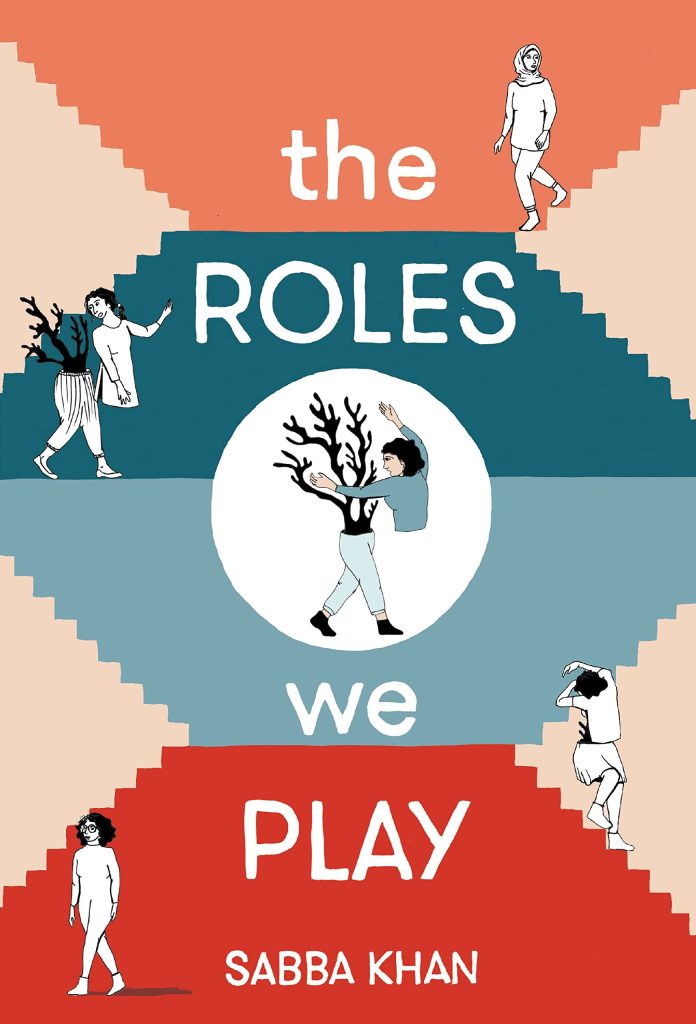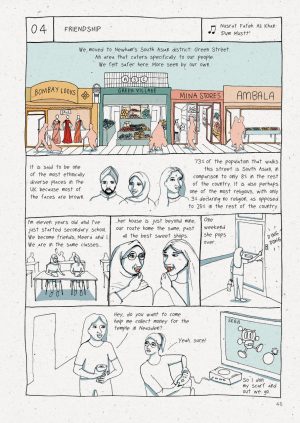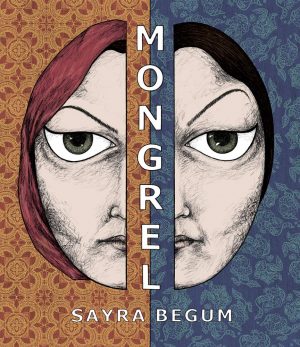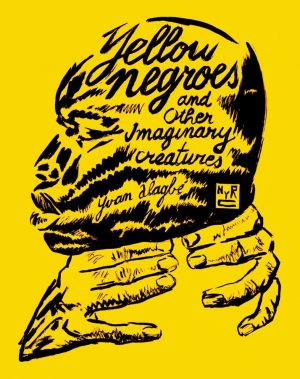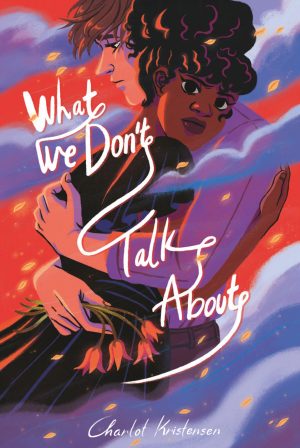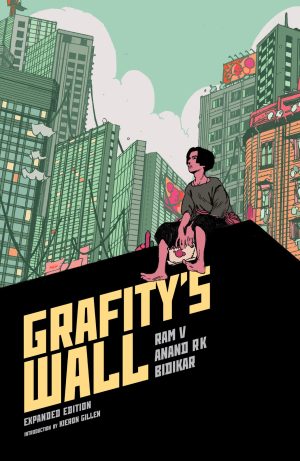Review by Win Wiacek
Do you know what’s one of the most scarily charged questions in modern life?
“Where are you from?”
It used to be a neutral opening: a simple introductory gambit when meeting new people, but has recently become fraught with purely British angst, dipped in layers of second, third and fourth-guessing for all parties concerned. Are the words a friendly, casual enquiry to establish social parity and share past experience, or is it a setting of the scene for a judgemental inquisition or even targeting for imminent disparaging condescension?
It’s perfectly referenced by the debut graphic novel of architectural designer and visual artist Sabba Khan. She’s British, but has to constantly remind not just the people around her, but also her own family.
Told over three transformative, illuminating stages The Roles We Play follows a young girl reared in a loving, abusive, restrictive, nurturing home that gave no shrift to individuality nor accommodated personal dreams. Instead everything concerned a culture, history and tradition forsaken for a new life in an incomprehensibly different world.
Khan grew up in East London when she was outside, but lived in a house that was a static box of ancestral Kashmiri life constructed following her parents move to England. They came as part of an Asian diaspora triggered by the 1947 partition of India and subsequent flooding of the Mirpur valley in Azad Kashmir in 1961. The project created a dam, power source and stable water supply, but forcibly displaced 15 million Hindus, Sikhs and Muslims who had previously farmed the valley in peace for generations. Apparently, two thirds of British Pakistanis trace their ancestry back to the Mirpur Valley and the 1961 Water Treaty between India and Pakistan still resonates in the ongoing battle for control of the Kashmir region.
Although womanly skills, and general history and context were abundant, scrupulously shared and passed on in the house, tolerance of British ways was not. Sabba grew up drawn in two directions. She cherished the love of family, support of faith and familiar ways, but was constantly chided for her incomprehensible interest in the places, ways and temptations of the different life beyond the house walls.
Always keen to chart her own course, Khan spent years seeking to balance two lives before choosing to pursue art and architecture. She claimed independence, breaking away from controlling family, constant judgement, wheedling scrutiny and soft-power governance to create her own career and multicultural clan with a man of another world and friends of her own choosing.
Her ruminations, observations and bittersweet reminiscences are cannily transformed into a captivating testament to a life of choice. She explores the truth of growing up Asian in Britain, seeking to assimilate the new whilst embracing the traditional. Seen in macrocosm, her superbly imaginative graphic designs and illustrative scenes trace a life of introspection and longing, deconstructing issues of race, alienation, rejection, cultural identity and sense-of-place-and-worth. On a personal level countless incidents cover a history of intolerance over religion, skin colour, gender, history, class and yes, race again.
Deftly sustaining a captivating balancing act between a British now with the idealised Kashmir she never knew, Khan manifests a compelling journey laced with humour, warmth, hope and unshakable determination. It should call out to not just migrant communities make up modern society, but also to all of us who used to proudly welcome strangers.
